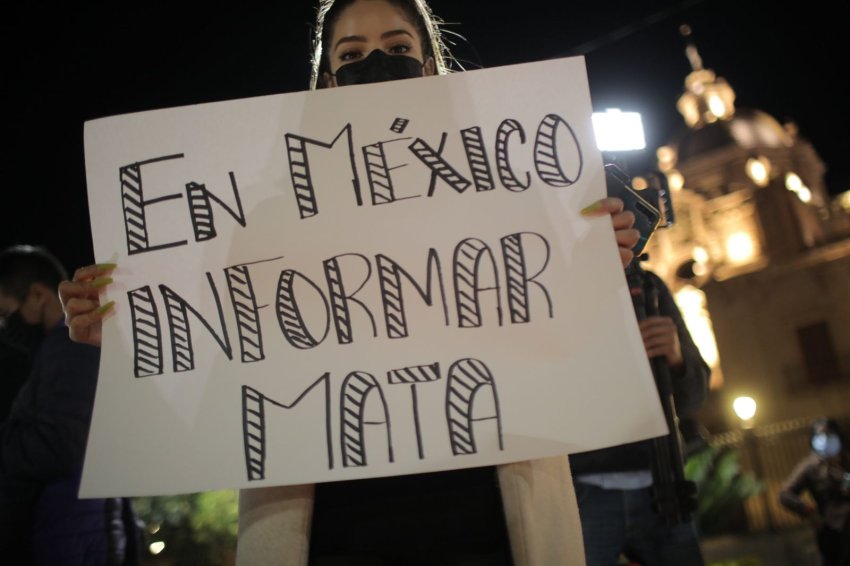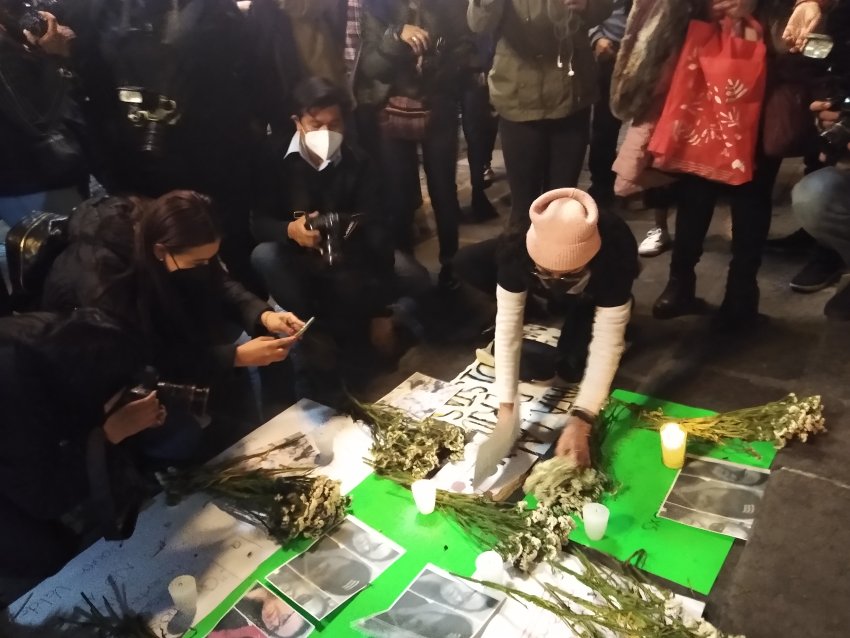
Journalist Lourdes Maldonado was shot and killed while inside a car in Tijuana, Mexico, on January 23. Photojournalist Margarito Martínez Esquivel was shot and killed as he left his home on January 17, also in Tijuana. And outspoken journalist José Luis Gamboa was stabbed to death in Veracruz on January 10.
Last year, Mexico was the second most dangerous country in the world for journalists, after Afghanistan. In 2021, 12 journalists were killed in Afghanistan, and 10 in Mexico. Over the past five years, Mexico has had the highest total number of deaths, with 66 murdered journalists, followed by Afghanistan with 53 and India with 40.
On Monday, following Maldonado's murder, journalists around the country decided they had had enough. Hundreds coordinated online to organise protests around the country. In-person protests were announced for the next day in 45 cities, in what was the biggest show of resistance by such workers in decades. Journalists in smaller towns also held vigils or protests in front of municipal buildings. In many of these cities and towns, journalists had never protested before due to fear.
In Puebla, journalists chanted “Justice!” as each name of their murdered co-workers was read out. Speakers denounced the almost-total impunity rate in such cases, as well as other forms of violence, and terrible working conditions.
331_-_mexico_city_cr_maria_ruiz.jpeg
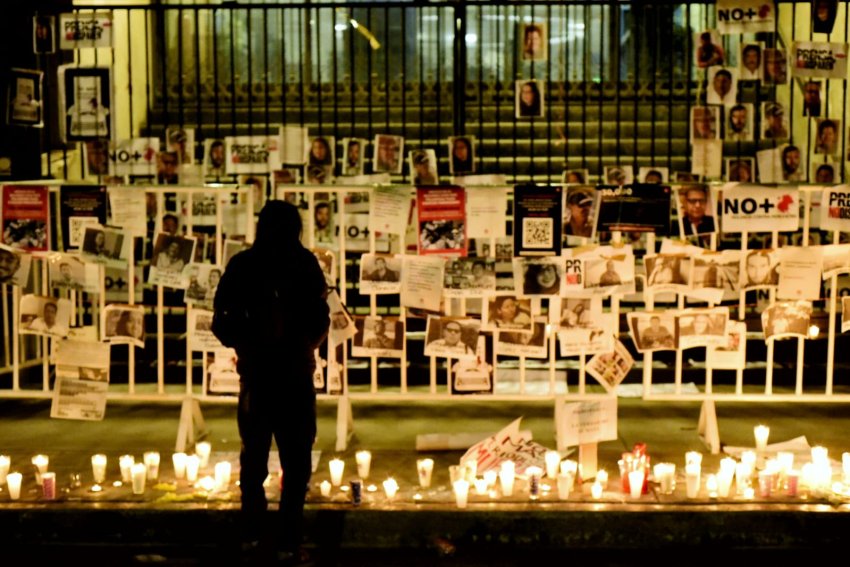
State institutions collude in the murders rather than protecting journalists
Gamboa had been well known for his social media broadcasts, where he criticised the waves of violence in Veracruz, the government, and how organised criminals, with state support, claimed public spaces and charged informal workers to sell there. Martínez had also focused on violence and security issues.
Maldonado had won a labour trial against former Baja California governor, Jaime Bonilla. As a result, he was due to pay her money on January 25, but she was murdered two days prior. It seems highly likely the state was behind her murder.
Maldonado had pleaded with president Andrés López Obrador (AMLO) during his daily press conference in 2019, saying she feared for her life and needed support. She also requested protection from federal and state institutions. She was not provided any; instead a police official visited her house each night and she signed a document.
331_-_ciudad_juavez_cr_nayeli_cruz.jpeg
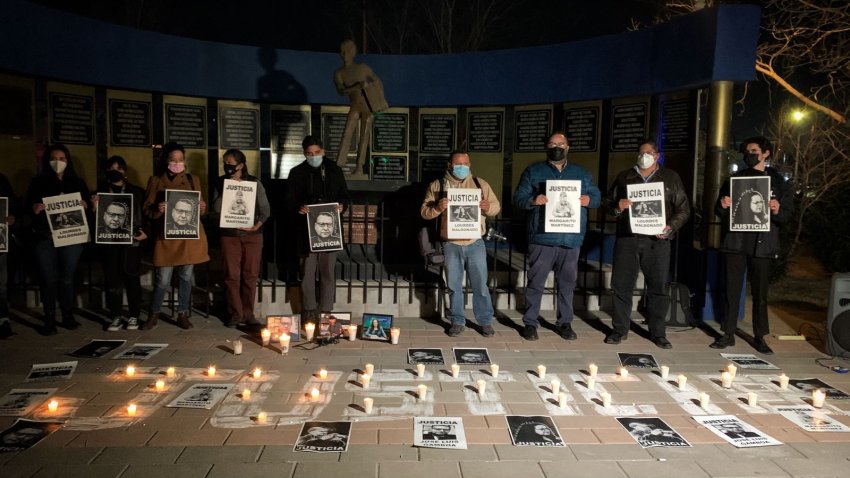
In a statement released on Monday, journalists described “regions of silence” where collusion between organised crime and state institutions means journalists are disappeared, threatened, or forced to flee, and aren’t able to work.
“I think it is important to protest, in order to demand an end to the systemic violation of our worker rights and of freedom of expression,” journalist Rubén Cruz told Green Left.
Cruz has received numerous death threats due to his work. In 2014, four men tried to kidnap him outside his house because of an article he wrote exposing an army operation in the house of a criminal leader. He wrote under a pseudonym for a while, then in 2019, “an armed man came to the door of my house in order to threaten my wife with killing me,” after he disclosed the criminal’s escape route.
When he wrote about the impunity of Colombian loan sharks, he was again threatened, this time by phone and “suspicious people” watched over his house for days. In October last year, people shot at his house on eight different occasions. “I’m scared for my life and for my family, that’s why we have to protest … us journalists live in fear of … becoming a statistic.”
“These days, you pay with your life when you write the truth,” Cruz concluded.
331_-_journalists_protest_in_yucutan._cr_lilia_balam.jpeg

Violence in the streets and workplace
Journalists in Mexico face daily aggression from police, as well as arbitrary arrests, slander and shaming. In 2020, there were 692 reported acts of aggressions against journalists, though the real figure would be much higher. These acts include threats, judicial harassment (inventing cases against someone in order to shut them up), general harassment, arrests, and more. Female journalists also experience an extra layer of violence, particularly psychological and physical violence, especially when covering issues like the feminist marches or critiquing the government.
Only four of Mexico’s 32 states have facilities for denouncing and investigating violations of freedom of expression.
Further, media workers endure job insecurity, meagre wages, and extremely long work days.
“As journalists, we face a lack of worker rights, low salaries, a lack of social security, and in many cases companies don’t even provide us with the tools we need to do our job, and there is no paid overtime,” Laura Quintero, of the Assembly of Media Workers Against Work Insecurity, told Green Left.
“With the pandemic, a lot of us have lost our jobs, and the majority of us have faced salary cuts of 30–50% … while the work day has gotten longer,” she said.
A survey by the assembly found that 80% of media workers carry out one more task extra than they were originally contracted to do, without extra pay.
331_-_journalists_protest_in_puebla_25_january_-_cr_tamara_pearson.jpg
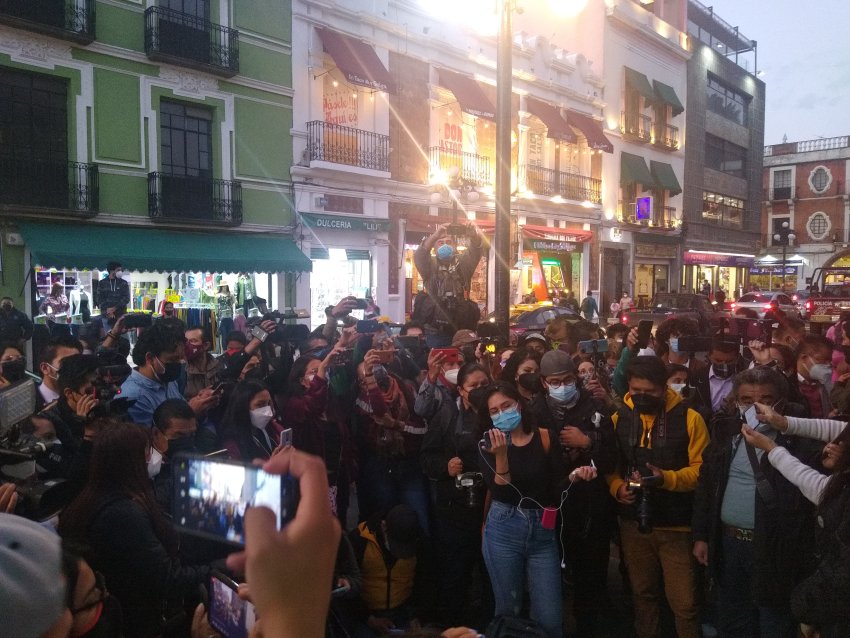
The business of silence
Mexico’s media is highly privatised, with mainstream media ownership concentrated in the hands of a few business families and conglomerates, which in turn have business deals or relationships with high-level politicians.
Given the commercial interests, the repression of journalists, and the excessive use of sensationalism to sell, 81% of Mexicans have little or no confidence in the media. Full time journalists often find themselves at loggerheads with their bosses to provide content that benefits the public, while freelancers struggle to find outlets able to pay them.
“We are concerned that while news companies make huge profits, there is no political, business, or judicial commitment to media workers,” journalists wrote in Monday’s statement.
The murder rates of journalists have skyrocketed since the United States supported a so-called war on drugs in Mexico in around 2007. As crime, murder rates, disappearances, and the numbers of gangs and criminal organisations soared, so did the murders of journalists covering the phenomenon. In 2002 and 2003, two journalists were murdered per year, while in 2010, 16 were killed, and in 2020, 19 were killed.
“The narco phenomenon is a way of life … and you have to do the work of a journalist. It’s that, or you play the role of an idiot. I don’t want anyone to say to me, ‘What were you doing in the face of so much death? As a journalist, why didn’t you describe what was happening?’ So I’ve taken it upon myself to describe organised crime, but within a social and human context,” wrote Javier Valdés, author of Narcojournalism, in 2016.
“More and more journalists are being disappeared, tortured, murdered in Mexico … It isn’t just organised crime doing it … it’s also the politicians, the police, the military. The biggest sin, the most unforgivable crime is to write about the painful events that are rocking our country … it is a big mistake to live in Mexico and be a journalist,” he wrote. He was murdered with 12 bullets in 2017.
[Tamara Pearson is a journalist in Mexico, and author of The Butterfly Prison. Her writings can be found at her blog. Twitter: @pajaritaroja.]
331_-_in_mexico_informing_kills_reads_the_placard_of_a_protester_in_michoacan._cr_ivan_villanueva.jpeg
